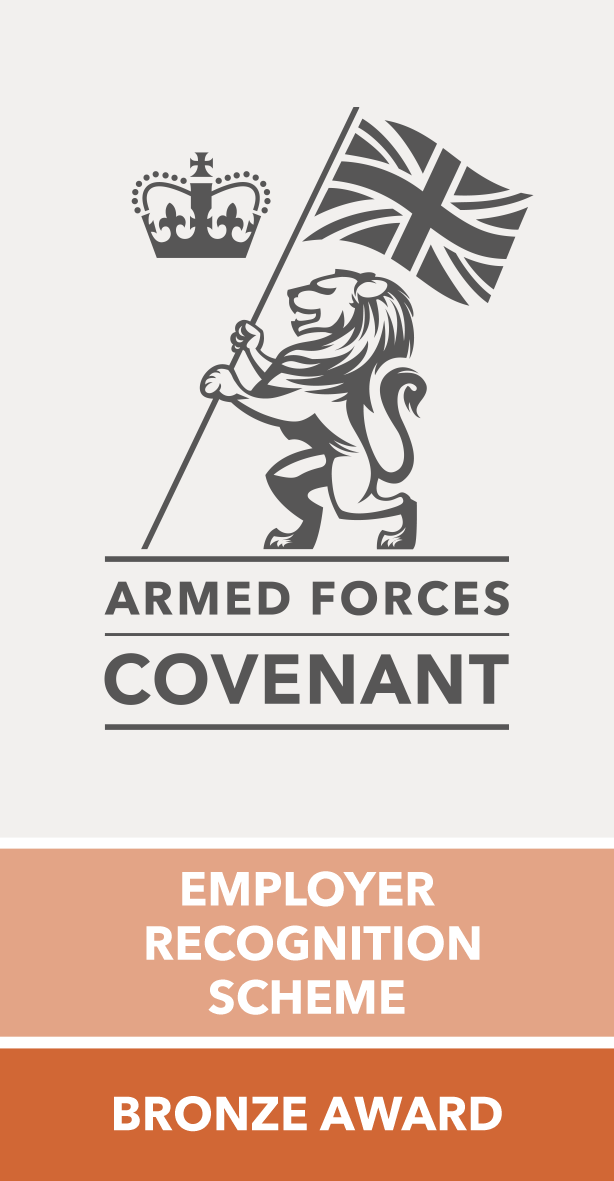SELF-HARM
SIGNS & SUPPORT
Self-harm is the act of injuring or hurting yourself. Self-harm can often begin as a coping mechanism - a way of dealing with difficult feelings, memories or overwhelming situations and experiences. After self-harming, there can be a sense of relief or release, but this is usually short-lived and the distress that caused the self-harm will still be felt.
Once self-harming begins, it can quickly become a regular habit or coping strategy and it can take a long time to stop. Self-harming brings with it a lot of very difficult emotions which can sometimes increase the reliance on, or increase the frequency of self-harm.
Why Self-harm?
Self-harm is different for everyone who experiences it and can affect people of all ages and backgrounds. Often beginning as a way of dealing with something unpleasant that is happening or has happened in the past. It is sometimes described, by those who have experienced it, as a way to express or cope with emotional distress.
There are many different reasons why a person might begin harming themselves, however, some people find it difficult to make sense of why they do it or discover the reasons behind it. The important thing to remember is that no matter the reason, there is help out there.
Some reasons why people begin self-harming are:
● Bullying
● School or work pressures
● Emotional, physical or sexual abuse
● Bereavement
● Homophobia, transphobia or biphobia
● Relationship breakdowns
● Losing a job
● Low self-esteem
● Stress
● Other mental illness (depression or anxiety etc)
● Illness or health problem
● Confusion about sexuality
● Money worries
● Contact with the criminal justice system
People who self-harm often find it difficult to express their thoughts and feelings and as a result engage in acts of self-harm as a way to:
● Feel in control
● Express something that is difficult to put into words
● Turn thoughts & feelings into something visible
● Help reduce overwhelming feelings & thoughts
● Turn emotional pain into physical pain
● As an escape from traumatic memories
● Have something consistent & reliable in their life
● As a way to punish themselves for feelings or experiences
● To help them feel something
● It gives a reason for them to care for themselves
● To express suicidal feelings & thoughts without taking their own life
There are many different ways a person can inflict injuries upon themselves and can include, cutting, scratching, overdosing, not letting wounds heal, restricting how much you eat, or overeating, biting or burning. The location and type of injuries a person has, can vary. Sometimes it can depend on the reasons for self-harm - for example, some people self-harm specific areas of their body that are linked to trauma, others self-harm where no one can see it easily.
Self-harm can be difficult for others to understand. This can result in a feeling of being judged and alone. Many people who self-harm keep it private from others. But some do want to be noticed or maybe in distress and need someone to acknowledge them. It is important to understand that no matter the reason behind self-harm you are deserving of an empathic response and the right advice when seeking help.
Initial steps you can take
Whilst we highly recommend reaching out to a professional, there are some steps that you can take to help yourself.
Learn to recognise your triggers
‘Triggers’ are things that result in the urge to hurt yourself. It can be anything from thoughts, feelings, people, places, situations and anniversaries.
Becoming aware of your triggers and understanding what happens in the moments before you self-harm can help you to identify when you are going to self-harm. You can try writing this information down, or keep a diary of what happened in the moments before. Keeping a diary can help you to identify exactly what triggers you to self-harm. Enabling you to eventually recognise the urge to self-harm - even if you are unable to resist it at first.
Becoming aware of the urge to self-harm
The urge to self-harm will come in many different forms for different people. But they can include sensations such as:
● Racing heart
● Strong emotions (sadness, anger, guilt)
● Loss of sensation or disconnection
● Repetitive thoughts about harming yourself or how you might harm yourself
● Trying to avoid self-harming by engaging in other things
Writing down these feelings and sensations alongside what was happening around you can help you identify how you feel as the urge to self-harm begins.
Learn distraction techniques
Having distraction techniques in place can help you to resist the urge to self-harm. Giving yourself the opportunity to overcome the intensity of the urges, allows you to get some breathing space. It is important to remember that you can still use these techniques even if you have already begun to harm yourself.
Understanding your patterns of self-harm can help you feel confident to recognise your triggers and urges. Keeping a diary is a good way to help you, but can be an intense experience. It is a good idea to ask for support with this from your counsellor or someone you trust. If you feel confident enough to do this on your own, make sure you do something relaxing or enjoyable after.
Helping yourself long term
Reach out for support
Reaching out can feel hard. Especially as you might feel worried that others will judge you. When you feel ready, try and choose someone who you trust to talk about your feelings with. It is up to you who you choose, it could be a family member, a friend, a health professional or counsellor. Share as much as you feel comfortable with and if there are uncomfortable questions - you can choose to say you are not ready to answer them yet.
It is important to have someone reliable who you can speak to when you are finding things difficult. Having a list you can refer back to is a good idea. You could include trusted friends or family members, organisations and websites that can help.
Harmless http://www.harmless.org.uk/
Samaritans https://www.samaritans.org/about-samaritans/ Call 116 123
ChildLine (for under 18yrs) https://www.childline.org.uk/ Call 0800 1111
Accept yourself
Sometimes people who self-harm can be made to feel ashamed of their behaviour, by people who do not understand. This can lead to feelings of wrongdoing. This should not be the case, your feelings are valid and are experienced by you. By learning to accept your feelings, you can start to face them. A counsellor can help you through this process, giving you the support you require to work through your emotions. Your diary can also help you to begin to acknowledge your feelings and help you work through them.
Focus on your self-esteem
Building your self-esteem can really help you to change your perspective and your experiences in life. Seeing yourself in a more positive way can make a big difference in how you feel about yourself. This will take time, but you can begin to take small steps to increase your self-esteem including:
● Saying, thinking or writing down kind things about yourself
● Write down things you appreciate about yourself
● Repeat empowered thoughts
● Learn to be more assertive and express boundaries about things that do not feel right
● Be in control of your decisions
● Choose things that make you happy and say no to things that don’t
● Look after your general wellbeing (exercise, eat well, get enough sleep, do things you enjoy)
Coming to the decision to no longer self-harm means that you understand your relationship with it. It requires you to put processes in place to help you to reduce your reliance on self-harming. The more you understand about the reasons behind why you hurt yourself the better equipped you are to find effective alternatives.
Although you can work through these on your own, a qualified counsellor can help you to work through these questions, as well as providing a trusted contact.
● How do you feel in the moments before and after you hurt yourself?
● Do you know the reason you started to hurt yourself?
● What situations make you want to hurt yourself?
● What fears do you have about living without self-harm?
● What would you miss about self-harm?
● Are there things you would like to understand about self-harm?
Self-harming Safely
Whilst we don’t encourage self-harm, we do recognise that for some people self-harm is a way of coping with emotional distress and there are steps that you can take to keep yourself safe.
You can help to limit the damage by:
● Not using drugs or alcohol before self-harming
● Keep your skin and any implements clean, you can use boiling water or sterilising fluid to reduce the risk infection
● Test any sharp implements on something first, orange peel can work. Sharp objects become blunter over time and may not work in the same way
● Try to inform yourself about the area of your body where you self-harm - What is under the skin? What are the effects of restricting food?
● Try to relax before self-harming, doing so when wound-up can result in serious harm
When you do self-harm:
● Have a first aid kit close by, including antiseptic wipes and creams, plasters and dressings, to help look after your injuries
● Clean the area gently before applying a clean plaster or dressing
● Cool burns under cold running water for at least 10 minutes
● Be kind to yourself
There may be times when you need assistance from medical staff. If you require urgent medical assistance, please call 999. You might need medical assistance if:
● Bleeding spurts or won’t stop
● Cuts are very deep or wide
● Burns are bigger than a 50p
● Any signs of infection, including the area being red, hot, swollen or oozing.
● Drug overdose
● Any ingestion of poisons
CAN YOU HELP SUPPORT THE HUB?
We Give our Best Each and Every Time!
- Every client is treated with respect
- Everyone is offered a hot drink and warm welcome
- From your first contact to your last session you are cared for
- We do our best to make sure you are leaving us more confident
We Give Hope Where There is None!
- No waiting list (unless funded then only 4 weeks)
- We don't turn anyone away
- We are often people's 'last chance'
- We properly 'listen' to our clients needs
We Save Lives!
- Fully qualified counsellors (we don't use trainees)
- 'Out of the box' counselling
- Funded sessions
- Every team member is amazingly friendly & respectful

Slide title
I don’t think I could recommend NWCH enough! My counsellor is great, I feel understood and hopeful and never judged. Thank you!
Young person Accessing NWCH Counselling Service
Button
Slide title
My son is opening up to Wayne about all aspects of losing his Dad - happy memories and the painful truth that he won’t be coming back. Wayne has taught him to acknowledge the pain but also remember the many happy times. The counselling he has had with Wayne has been invaluable.
Mum of her young son Accessing NWCH Counselling Service
Button
Coming in for couples counselling, we were both nervous about how the session would work having not done anything like this before.
He listened to each of us and made it feel very light-hearted and easy. We were able to share our feelings and thoughts and Ian gently guided us to explain our views to help us see each other’s views and gave us things to think about for next week.
Couple Accessing NWCH Counselling Service
Button
Slide title
Personally, I was a very sceptical individual and initially attended as a good Will gesture to my family who had encouraged me to do so……. that being said I found myself to be able to talk to (let’s be honest, a stranger) about my life and its difficulties in an open and comfortable fashion……. don’t get me wrong I’m no soft touch! But I found it genuinely comforting to be able to do so! …. it makes me ask and look for answers from myself ….. rather than someone with a title telling me what’s wrong……,
Adult Accessing NWCH Counselling Service
Button
Slide title
The match of counsellor has meant my husband looks forward to his sessions & already is feeling happier & we as a family are seeing a difference. It is detail like this that makes asking for help via the NW Counselling Hub stand out – plus the reassurance all counsellors are qualified.
We cannot recommend the NW Counselling Hub enough and thank them for all they are doing for our family.
Adult Accessing NWCH Counselling Service
Button
Slide title
“We want to support our team when ‘life happens’. We asked NWCH to be our ‘go to’ support service for counselling and emotional support to help members of our team, if they need it, get them through some difficult personal issues such as bereavement and anxiety. The team at the hub are incredibly supportive and have provided a lifeline to our team”
Lincoln Employer referring employees to NWCH Counselling Service.
Button
Slide title
“NWCH have been providing counselling services to our employees for a few years now and I can honestly say that they have made a significant difference to many of their lives.
We are a company that believes in investing in our staff, and it is great to see when that investment is so profound and has such a positive impact, especially when it comes to people’s wellbeing.
Thank you NWCH, for enabling us to offer our teams such fantastic support and help to feel better when they face challenging times.”
HR Manager at Micronclean Ltd
Button

OFFICE
NW Counselling Hub CIC
Cromwell House
Crusader Road, off Tritton Road, Lincoln, LN6 7YT
CONTACT INFO









